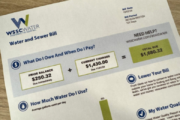Dr. Eric Topol
Title: Physician-scientist, professor of molecular medicine and founder-director of the Scripps Research Translational Institute
Location: La Jolla, California
The Delta variant is the latest, most contagious version of the coronavirus to date. Delta is now responsible for over 20% of all new U.S. cases and is continuing to spread. On Monday, an article describing Delta’s extreme “fitness” among viruses, co-written by Topol, appeared in a medical journal. Here, Topol explains how COVID-19 vaccination and containment efforts must be stepped up to meet the rising threat.
As told to Lisa Esposito, as part of U.S. News & World Report’s “One Pandemic Question” series. Responses have been edited for length and clarity.
Q: Why is the Delta variant so disturbing despite rising rates of COVID-19 vaccination?
We still have 46% of people who are not vaccinated, who are vulnerable, particularly to this Delta variant, which is a superspreader strain. We’ve already seen what it’s done in India and the U.K., what’s going on now in Russia, Indonesia and many other countries.
It’s going to happen here — it’s going to be the dominant version of the virus until another one comes along that’s even more fit. But right now, this is our immediate concern: the vulnerability of a significant proportion of Americans.
The pattern we’re seeing with Delta elsewhere is that younger people are getting it, because other countries took great care to vaccinate against COVID on an age-stepwise basis. So they got a very high proportion of people over 65 vaccinated, or even people over 50.
We haven’t done as well as that in the U.S. So we’re still going to have some older people getting infected and they are the most vulnerable for getting very sick and even for death. Fortunately, so far, deaths from the Delta variant have not been a major problem. It’s more that it gets spread so readily.
Delta is about 50% more contagious than the prior hyper-transmissible Alpha variant. So it’s really a big jump and that’s why it has caused so much trouble already in other parts of the world. And it’s already gotten past 20% of new cases here.
When it gets to over 50% in the U.S. in the next few weeks — that’s when we’re going to start seeing the problem of cases going up again, especially in places where there’s lack of strong immune-protection.
[See: Ways to Boost Your Immune System.]
If you’re fully vaccinated you really shouldn’t be worried, because the chances of you getting the Delta infection are extremely low, although there will be rare exceptions. When parents get vaccinated, children derive protection as well.
The people who need to be concerned are those who have not gotten vaccinated. Or, they’ve just gotten their first dose and they’re not yet forming enough neutralizing antibodies, T-cells and immune response.
People who are immunocompromised — they have an autoimmune condition or they’re taking a cancer drug that’s inhibiting their immune system — are also vulnerable and still need to wear masks, because the vaccine may not give them full protection.
But the biggest vulnerability is among people who have not been vaccinated — especially if they haven’t had COVID. At least if you’ve had COVID you have some protection. But if you’re unvaccinated, with no COVID so far, you’re going to be the most likely new host of this virus as it goes through the population looking for people.
Variants will thrive more if COVID-19 goes unchecked. For example, right now Delta infection in South America is the worst in the world. If we don’t help that situation and get it contained, there will be further evolution of the virus, which could elude our vaccines.
We can’t take vaccine protection for granted. Fortunately, the vaccines we have in the U.S. are working exceptionally well. But it doesn’t mean they always will, as the virus mutates. So that’s a concern.
If we had containment throughout the world, we wouldn’t be worried. But the fact is we’re a long way from it. Because we don’t have enough vaccines, particularly the really high-efficacy vaccines to get to the places that are really battling very serious and rapid outbreaks.
We know that vaccine production isn’t going to be ramped up to make significant headway around the world until a year to a year-and-a-half from now, at the earliest. So, we know there’s going to be further evolution of the virus. Hopefully, it won’t be that we see substantially worse versions of the virus than we’ve already seen. These variants are bad enough.
[SEE: At-Home Supplies for COVID-19.]
There’s a lot we could do in response to Delta and other variants. First is a counteroffensive to the misinformation in this country — a serious countering of all the weaponized disinformation, anti-vax, anti-science that’s going on.
We should still work hard to get the rapid testing out there. So people who have not been vaccinated would know if they’re potentially infectious as they go to mix with other people who are also not vaccinated.
Contact tracing still has a role and needs to be much better as we start to try to stop outbreaks at the earliest time. There’s genomic surveillance — which is still absolutely inadequate in this country — that needs to be done so we can find variants when they emerge.
On the one hand, the country’s in the best shape it’s been since the beginning of the pandemic right now. But we want to keep it that way and get it even better. We’re still seeing over 10,000 to 12,000 cases per day and a few hundred deaths per day. We still have work to do.
Obviously this country can’t do lockdowns or stay-at-home. We’re not going there anymore — it won’t be necessary as major surges are quite unlikely. Plus, the U.S. is not good at executing such lockdowns.
What we can do is really rev up the vaccination. And I hope that’s going to happen, especially when the Food and Drug Administration gives full licensure to the vaccines. Currently, neither Pfizer nor Moderna is fully approved beyond emergency use authorization.
That has been a limiting factor. It’s the reason organizations have not made it a requirement to get vaccinated: the military, health systems, large private employers. All of that could change overnight when full licensure is given by FDA for the vaccines.
They should be getting full licensure now: Because the FDA has already done plant inspections; they already have a humongous amount of data on safety, efficacy and effectiveness. In my view, they’re overdue.
And there’s no one asking the FDA what’s going on, so a timely review can get completed. It drives me nuts. No one is asking Dr. Janet Woodcock: Where is the full licensure? Because a lot of Americans’ health is on the line here.
More from U.S. News
Autoimmune Diseases That Can Be Fatal
Foods That Can Support Your Immunity
Dr. Eric Topol: Delta Variant ‘Superspreader’ Must Be Checked originally appeared on usnews.com







